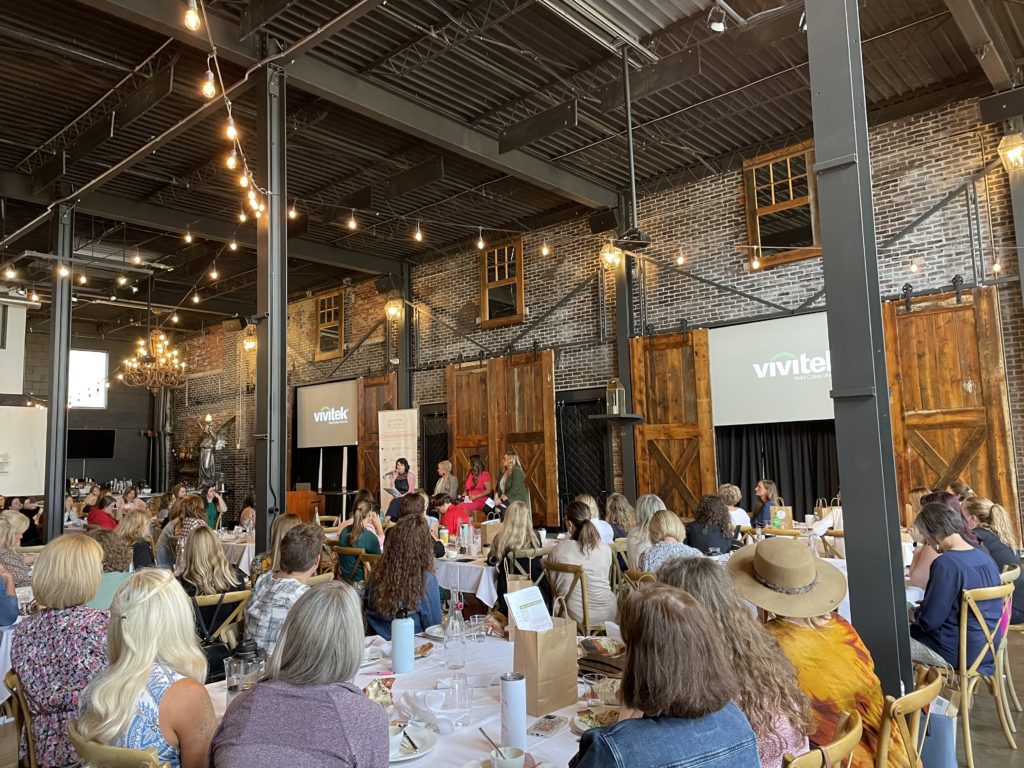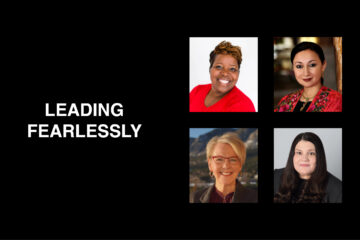By Emily Kestel

We’ve all been to business industry conferences where schedules are packed-to-the-gills with sessions on strategies, innovations and words of wisdom.
The first-ever FemCity Des Moines Beyond Business Conference went, well, beyond that. The conference, which was geared toward women and gender-nonconforming business members and entrepreneurs, mostly focused on personal and professional growth strategies.
Session topics included personal brand photography, building resilience, using TikTok for your business, how your menstrual cycle can affect your work, how to write a book and having meaningful conversations.
Here are six of my takeaways from the conference.
Knowing yourself is key.
This is the queen takeaway of all takeaways. Every session touched on this in some way or another, whether it be knowing your body, knowing your value or knowing your ability to bounce back.
Alyx Coble-Frakes is the CEO of the Agenda Period, a planning system that helps people understand phases of their menstrual cycle and then use that information to inform their routines in and outside of work.
She said she wants people to use their periods as a tool for good in their lives. Knowing the phases of your cycle can help you determine what you put on your to-do list for the coming days.
For example, during your menstrual phase, you have higher levels of intuition, so this may be a good time to plan. Your follicular phase comes along with an increase in energy, so it may be beneficial to plan new projects or attend networking events throughout the phase. The ovulation phase is often when you feel most confident, so this is a great opportunity to conduct sales calls, ask for a raise or take risks. Lastly, the luteal phase is an ideal time to complete administrative tasks.
Knowing what you want is also important.
The following are questions that were posed to attendees throughout the conference:
- What do you want your life to look like?
- What are your dreams?
- What are your priorities?
- What’s in your zone of genius?
- What does success mean to you?
- What is your why?
Give yourself permission to fail and try again.
In her session, Christina Moffatt, business development officer at PurposeBank, talked about her journey in starting Creme Cupcake, and then making the decision to step away from it.
Moffatt said she was denied for a loan seven times when getting Creme up off its feet. That didn’t stop her, that just taught her to pivot and reinvent.
“You have to fail to learn and you have to fail to continue to grow,” Moffatt said.
In the “Real Talk” panel discussion, relationship coach Liliana Knowlton said rejections are part of the journey, and once you accept that, it takes a weight off of your shoulders.
‘No’ is a complete sentence.
In her keynote address, FemCity Founder Violette de Ayala implored attendees to set boundaries and say no.
Women are selfless creatures, which often means they don’t put themselves and their needs first. But prioritizing yourself is important.
“When we set boundaries for ourselves, we give others permission to do the same,” de Ayala said.
She also added there’s no need to add a qualifier when you decline or refuse something.
“Say no, then keep your mouth shut,” she said. “Don’t do the ‘no, because.’”
Remember to rest.
Wellness coach Mary McCarthy used the term “rest-ilience” when talking about the importance of self-care and how it relates to your ability to be resilient.
“Rest is important because so many of us are on the verge of burnout,” McCarthy said. “Rest is not glorified in this country. Taking a nap is poo-pooed on because we’re in a hustle-and-grind environment.”
Both McCarthy and de Ayala touted meditation as a helpful way to rest and reset.
Every morning deAyala takes time to meditate and envisions the word “love” shimmying down her body. McCarthy encouraged implementing the five senses countdown approach, where you identify five things you see, four things you feel, three things you hear, two things you smell and one thing you taste.
Work to be fully present in your conversations with others.
Being fully present is the key to good listening, professional coach Michelle Rembert said in her session.
The roadblocks to successful conversations are plentiful and common. It can be hard to not think about what you’re making for dinner or what you need to do before your next meeting when you’re talking to someone. It can also be difficult to refrain from interrupting or filling every silence.
To help mitigate those roadblocks, Rembert offered up the PAUSE acronym:
- Present, including physically, mentally and emotionally.
- Ask open-ended questions, like those that begin with “what” or “how.”
- Use whole body listening, and pick up on nonverbal communication cues.
- Seek to understand by remaining curious and summarizing for clarity and understanding.
- Enhance self-awareness.
